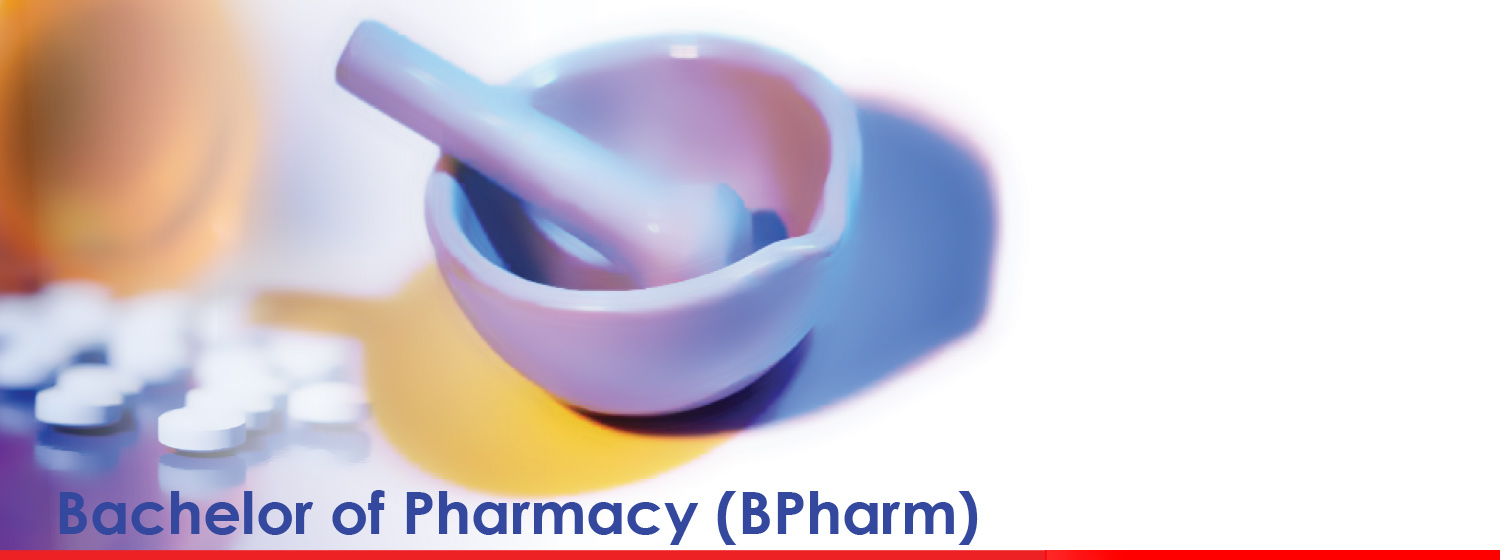
PROGRAMME DESCRIPTION Bachelor of Pharmacy (BPharm) program will be graduating highly competent medical professionals who will be assisting people in their most vulnerable state of ill health compassionately with knowledge to uplift the lifestyles of their fellow human beings. This is in line with DDTCOM‟s Mission which is To graduate excellent and compassionate professionals in medicine to uplift the quality of life of mankind
HOW DOES THE PROGRAM PROVIDE SKILLS THAT ARE LIKELY TO BE NEEDED BY GRADUATES?
DDTCOM‟s BPharm program is a 4-year Bachelor of Pharmacy degree with didactic and experiential parts. Though all along students will be given some exposure in practice of pharmacy, it will be minimal in the first three years as concentration will be on the didactic learning of pharmacy core subjects as depicted in the curriculum. The last year will be fully spent on the field with the pharmacy student practicing pharmacy under supervision in diverse circumstances as in rural health posts, clinics and hospitals. The aim will also be to give them experience in the public and private sector. The program consists of about 8 trimesters of didactic and 4 trimesters of practical attachment. The expected competencies are going to be realized also by this practical component that will be enabling graduates to be competent clinicians at graduation.WHAT CAREER OPPORTUNITIES IS THE PROGRAMME LIKELY TO OFFER GRADUATES?
BPharm graduates are needed at all levels from health post, clinic, primary hospital and tertiary hospital nationally and internationally. Pharmacy graduates are able to proceed to specialize in areas of interest as in product development and pharmacology. The job opportunities are not only available in Botswana but also regionally and internationally as they are in general short supply.LEARNING OUTCOMES
WHAT WOULD LEARNERS KNOW AND UNDERSTAND AS A RESULT OF COMPLETING THE PROGRAMME OF STUDIES?
• The curriculum is designed to incrementally develop strong scientific foundations (in the biomedical, pharmaceutical, social, administrative, and clinical sciences) and professional skills and demonstrate: • Expert knowledge of medications- demonstrate knowledge of and ability to use basic principles of chemistry, biochemistry, physical science, biology, mathematics and statistics needed for the application of these sciences to drug therapy and human health.
• Expert knowledge of practice- demonstrate knowledge of and ability to use principles of therapeutics, quality improvement, communication, economics, health behavior, health policy and legal issues in the practice of pharmacy.
• Problem-solving and decision-making- demonstrate use of observational, analytical and critical thinking skills to develop and implement solutions that solve practical, real-world problems to produce and monitor safe and appropriate medication use.
• Intergroup behaviors in a variety of situations and circumstances such as inter-professional teams, pharmacy-related work environments and professional organization committees.
• Patient-centered care-provide patient-centered care to diverse patients using the best available evidence and in consideration of patients‟ circumstances to devise, implement, monitor and amend the pharmacotherapy plans of care, either independently or as part of healthcare teams.
• Management- effectively apply principles of financial, marketing and personnel management relevant to independent practices, healthcare teams
• Information management-utilize information management systems such as electronic health record, prescriber order entry, pharmacy dispensing systems and drug information databases to access information and provide care/services. They will also contribute to system development and ongoing improvement.
• Research-be effective translators of scientific concepts and technologies by being critical appraisers of the scientific literature. They will know and apply the principles of conducting research.
WHAT WILL THE GRADUATE DO AS A RESULT OF THE LEARNING EXPERIENCE ACQUIRED ON THE PROGRAMME?
• The graduate will be able to provide pharmacy service at all facility levels in the country and beyond• Be competent to advise other health team members on good use of medicine
• Be competent to advise other health team members on safe use of medicine
• Be competent to conduct broad based pharmacovigilance among others.
• The BPharm graduate as a professional will be able to provide the same high level pharmacy service regionally and internationally.
PROGRAMME OUTLINE
PHARMACY CURRICULUM
The 4-year curriculum of the BPHARM Program is a 12 trimester (138 credits) bachelor’s degree program. It is divided into an 8 trimester didactic phase and a 4 trimester clinical phase of instruction. By the end of the didactic phase, a successful student will have completed several courses and earned 105 trimester credits. On average for each credit a course is worth, it is equivalent to each hour a week a course meets. For example, a 4 credit course usually meets between 3 and 4 hours each week.
By the end of the clinical rotation phase of the curriculum a successful student will have completed several rotations and 33 trimester credits will be earned. During the clinical phase, on average, each credit is equivalent to 1.5 to 2 weeks a rotation takes place. For example, a 4 credit rotation is usually achieved in 8 weeks.
To provide learners with a sense of relevance for the curriculum and to embed the practical principle of ‘see one, do one, teach one’, experiential components are threaded throughout all four years of the professional curriculum. During Introductory Pharmacy Practice, learners will provide various pharmacy services in a controlled environment and develop a patient’s perspective of the healthcare system.